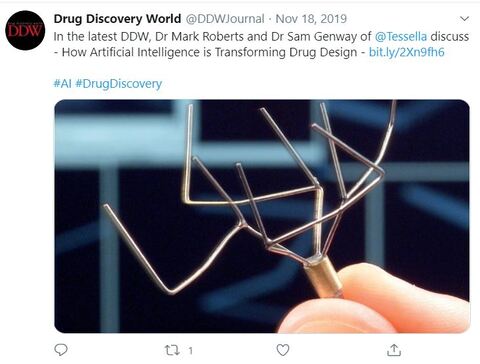The messenger matters as much as the message
How to use experts to supercharge the impact of your content

Which of these sentences resonates more?
- “Every physical product will be an IoT device within a decade” says Jean Smith, Professor of Cyber Physical Systems at Oxford University
- “Every physical product will be an IoT device within a decade” says Jean Smith, Head of Marketing at IoT Corp.
Both have exactly the same content. But the former feels considerably more trustworthy.
The reasons are obvious. An independent expert on a topic is immediately trustable.
People make snap judgements based on the qualifications of the writer, speaker or contributors. In world of infinite content, relevant expertise is a useful indicator of whether content will be worth reading.
Marketing Jean may well be an expert too. But we are less likely to seek out her view on this topic, and more likely to view it sceptically (NB both Jeans are hypothetical people).
Build trust in your message
In B2B marcomms, we often talk about having the right message. Workshops are run and endless iterations produced to pick exactly the right words.
But we rarely talk about having the right messenger.
Yet having the right people to deliver your message is critical – particularly on emerging or complex topics. When we hear from people we trust, the message carries more weight.
How to find the right messenger: First look to your experts…
Many organisations have expertise and credibility to draw on. Consultancies, Universities, Trade Associations, and Public Bodies, are usually trusted because of the nature of their work. Companies that employ subject matter experts can use these to author their thought leadership. Senior people in well-established companies are usually assumed to have solid industry insight.

Such companies should recognise the value of using these trusted messengers as the face of their communications.
For example, our client Tessella is a team of highly experienced data scientists with scientific backgrounds and experience solving complex data problems for major companies. So our content programme largely draws directly on their expertise. This works, as they are the kind of experts that people turn to for advice on this topic.
…then look to independent experts
But what if you are a new or below the radar organisation? Or if there is a gap in your internal expertise? You may have brilliant insight, but why would people come to you to hear it?

In these cases, you should look to outside experts who your particular audience will respect. Scope out content that you know will be useful to your customers, then invite respectable names to be interviewed for it, and so have their name attached to it.
A common, if expensive, way to do it is to pay an analyst house to write something with your name on it. But there is no reason you can’t do something of equal quality yourself – which you actually own – by bringing together respected voices on a topic where you want to be seen as an authority.
Our own thought leadership report, for example, contains insight from experts from Accenture, BCS, and The Economist, who were fans of our approach, which has given it much more credibility (and of course added considerable insight beyond our own).
Most companies can identify friendly contacts who would happily help out. Even if not, independent experts can be approached to be interviewed (possibly for a fee).
Having trusted experts as authors or contributors to your thought leadership adds huge credibility. It signals to the reader ‘this is going to contain something good, it’s worth your time reading this’. And that reflects well on your own expertise.
It also gives you ready made endorsements of your arguments to back up your business case whenever you need it: online, in the media, and in sales meetings.
For more insights like this, sign up to our newsletter.









